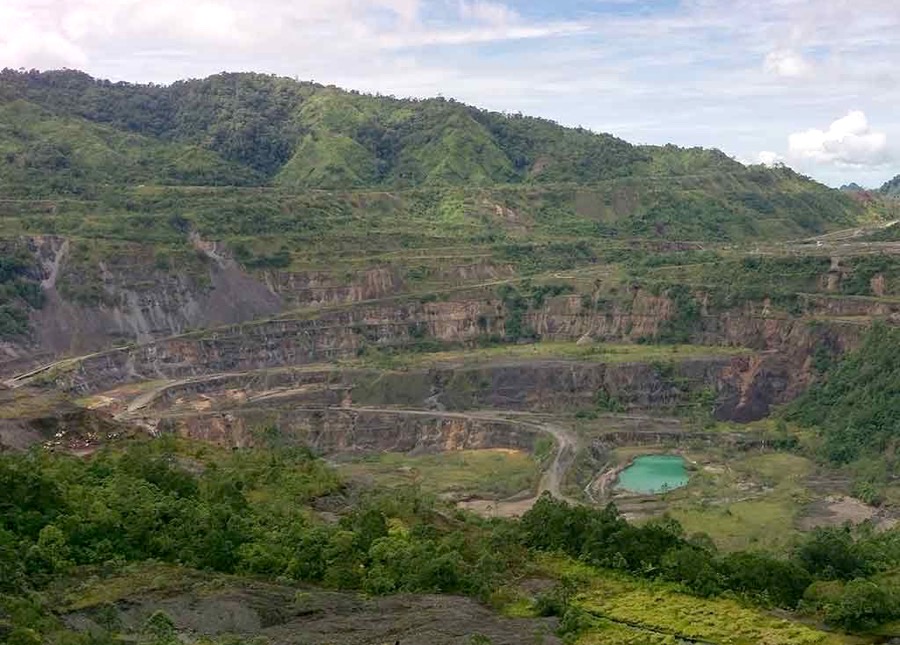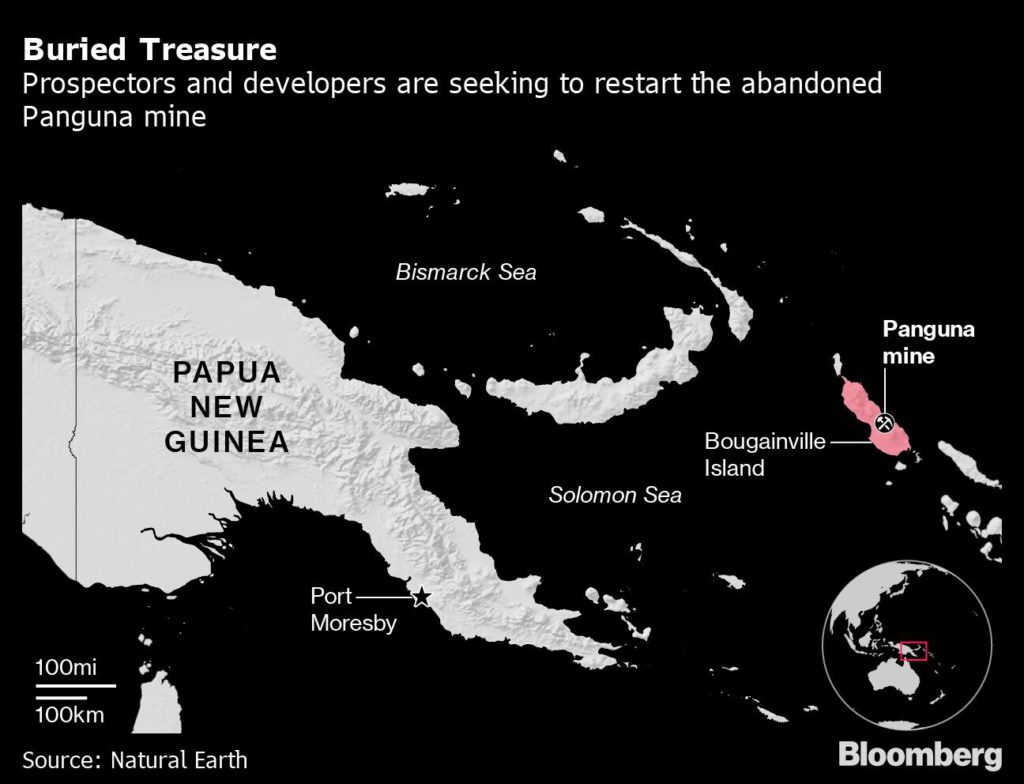Bloomberg News | May 23, 2024 |

The idled Panguna copper-gold mine was once a major producer and one of the largest open pit mines in the world. (Image: Bougainville Copper Limited.)
Thousands of people in Bougainville, an autonomous region of Papua New Guinea, have filed a class action lawsuit against Rio Tinto Plc and its former unit Bougainville Copper Ltd. over what they say is historical mismanagement of the massive Panguna copper mine.

Panguna, which was operated by Bougainville Copper, shut in 1989 after local protests over the disbursement of revenue from the mine degenerated into a civil war that killed as many as 20,000 people. The villagers are seeking compensation for loss and damage that could be expected to be in the billions of dollars, said Matthew Mennilli, a lawyer representing the plaintiffs with the Sydney-based firm Morris Mennilli. Lawyers at Port Moresby-based Goodwin Bidar Nutley are also representing the Bouganvilleans.
Rio Tinto said in an emailed statement that a class action proceeding has been filed against it and Bougainville Copper in the National Court of Justice of Papua New Guinea. “We are reviewing the details of the claim. As this is an ongoing legal matter, we are unable to comment further at this time,” the company said.
The legal action is being financed by Panguna Mine Action LLC, a company established for the purpose of funding the investigation and prosecution, according to its website. There is a litigation funding agreement between PMA and each class member and the funder will be reimbursed for costs and receive a share of compensation.

“The mine has torn our communities apart,” the plaintiffs wrote in a letter to Rio chief executive officer Jakob Stausholm posted on the PMA’s website. “The broader impacts of the mine have undermined our people’s access to reliable sources of food and fresh water and to the natural habitat. Traditional livelihoods in agriculture and fishing are disrupted and, in some cases, entirely destroyed, leaving us without sustainable means.”
Bougainville President Ishmael Toroama, who visited the US last November, has said he wants to reopen the mine, which still holds billions of dollars worth of copper, gold and silver to finance the region’s independence from Papua New Guinea. Bougainvilleans voted overwhelmingly for independence in a 2019 referendum that was part of a United Nations-brokered peace agreement in 2001 that helped end the war. However, independence must still be ratified by the government of Papua New Guinea, and could take years.
Bougainville Copper estimated in 2020 that it would take seven to eight years and $5 billion to $6 billion to rebuild and resume full operations at Panguna. Copper, a metal crucial for the energy transition because of its ability to conduct electricity, rose to an all-time high above $11,000 a ton on the London Metal Exchange this week.
(By Aaron Clark)
No comments:
Post a Comment